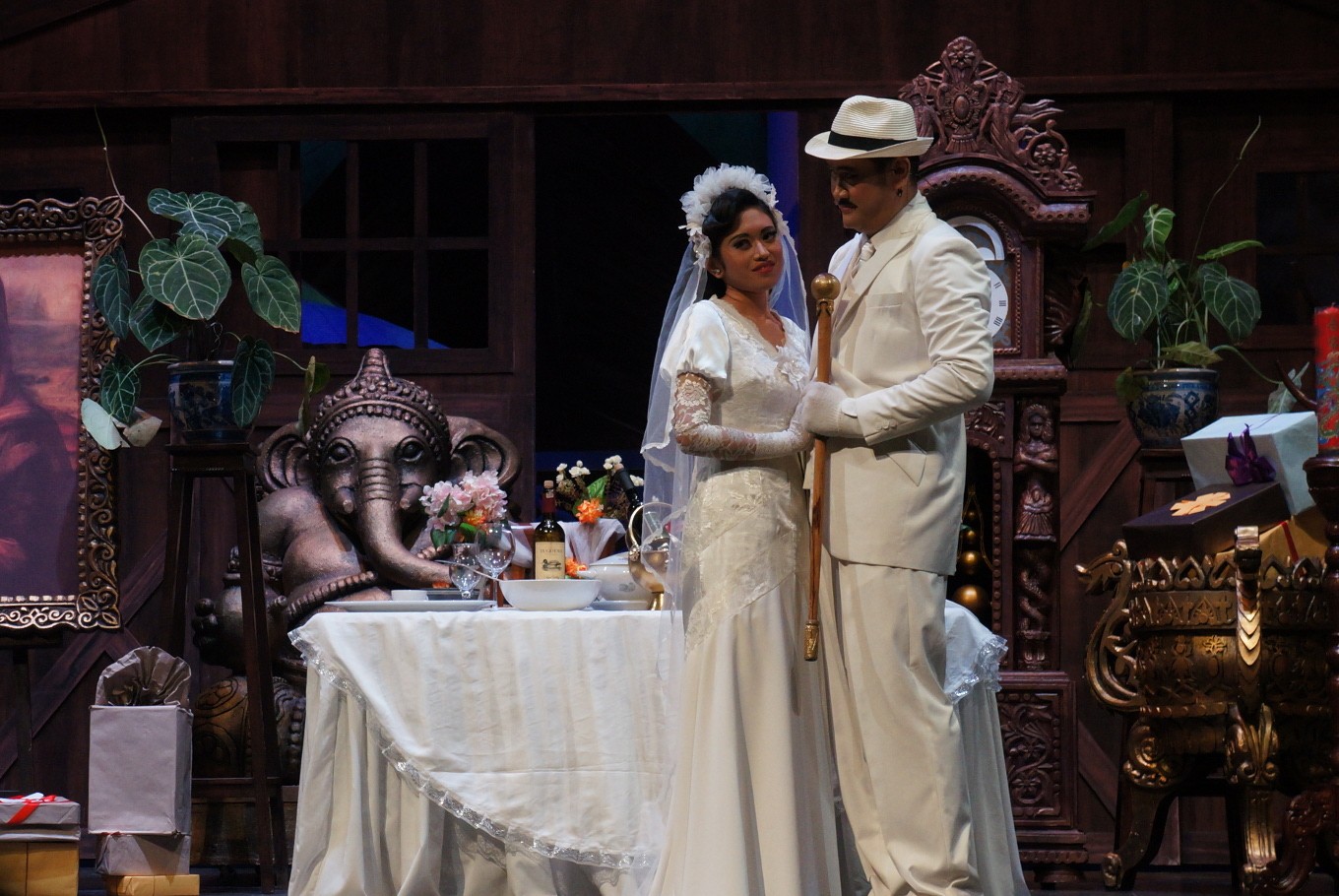Popular Reads
Top Results
Can't find what you're looking for?
View all search resultsPopular Reads
Top Results
Can't find what you're looking for?
View all search resultsGloomy portraits of Indonesia's past and future
Sadly, the dark realities of power structure and marginalization portrayed in Teater Koma’s latest play are still relevant in Indonesia, 34 years later.
Change text size
Gift Premium Articles
to Anyone
M
asa lalu hitam kelam (the past is pitch black), sang the troubadour played by Sari Madjid in Teater Koma’s recent nostalgic show from one of its most popular plays, Opera Ikan Asin (Salted Fish Opera).
Masa depan, lebih kelam (the future is even darker), she continued in her cabaretstyle upbeat singing, conveying an apparent irony. The dark humor outlined in this punch line got its message across with the audience laughing dryly at the comic troubadour.
Indeed, Indonesia’s contemporary situation paints a bleak picture. The flourishing financial derivative products, relying heavily on speculation, are quashing the real economy, the true driver of economic growth. As a result, a massive amount of wealth is concentrated in the hands of an elite few, limiting other people’s access to economic and social facilities as the years go by.
This marginalization of individuals results in a number of visible consequences: the exploitation of the poor and needy, the flourishing of criminals and a rising crime rate as people no longer have faith in the legal and social system, as well as the exploitation of women’s bodies through prostitution.
All these issues appear in Teater Koma’s recent play Opera Ikan Asin, which is being staged from March 2 to 5 at the Ciputra Artpreneur theater in the Lotte Shopping Avenue, Karet, South Jakarta.
Adapted and directed by auteur Nano Riantiarno from John Gay’s The Beggar’s Opera and Bertolt Brecht’s Die dreigroschenoper (the Three Penny Opera), the play is being staged to mark the 40th anniversary of the legendary troupe. It was initially staged in 1983.
Similar to most of Teater Koma’s works, the play still criticizes the complex and malicious power dynamics among people across different socio-economic strata and backgrounds.
Set in the city of Batavia (now Jakarta) during the Dutch occupation, all of the play’s characters are gray; everyone here has the same lust for power and will do anything to attain it. Who loses or wins in the end depends on who happens to sit on top of the social ‘food chain’ at any given time.
The capitalist is represented by the Picum family. Natasasmita Picum (Budi Ros) is a businessman who exploits the poor, all the while putting them to sleep by lulling them with Biblical verses.
“Nobody can find words more powerful than those found among Biblical verses,” Natasasmita says onstage, drawing laughter from the audience familiar with how religious texts are often manipulated by people in power to control the masses.
When his daughter Poli (Sekar Dewantari) marries the notorious bandit Mekhit aka Mat Piso (Rangga Riantiarno), he denounces the union and deploys the city’s beggars to a rally in order to drag Mekhit to jail. Things, however, are not that easy as Mekhit is a close friend of Katamarma (Joind Bayuwinanda), an assistant to the local chief of police who eventually rescues him from jail to escape the death penalty.
Thanks to his powerful connections and wit, Mekhit seems to be able to evade death until his Achilles’ heel, namely his lust for women, drags him to his end.
The audience will begin to sympathize with Mekit in a strange turn of moral judgments. This is where the script’s play shows its strength, as it is able to reveal the invisible and not-so-obvious power structure of our society in a sweeping three-hour performance.
Despite being staged for the first time three decades ago, the play is still relevant.
There are, however, some criticisms. The play often showcases slapstick, gender-biased and low-brow humor in exploiting gross sexuality. Although these types of humor were acceptable in the early 1980s, it might not be acceptable to the sensibilities of millennials who tend to be conscious of gender equality and political correctness.










